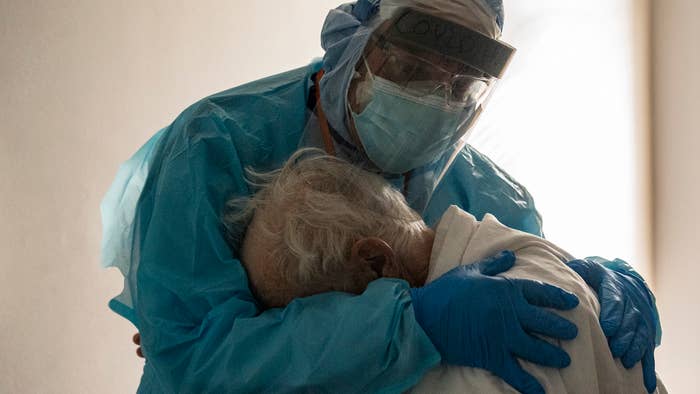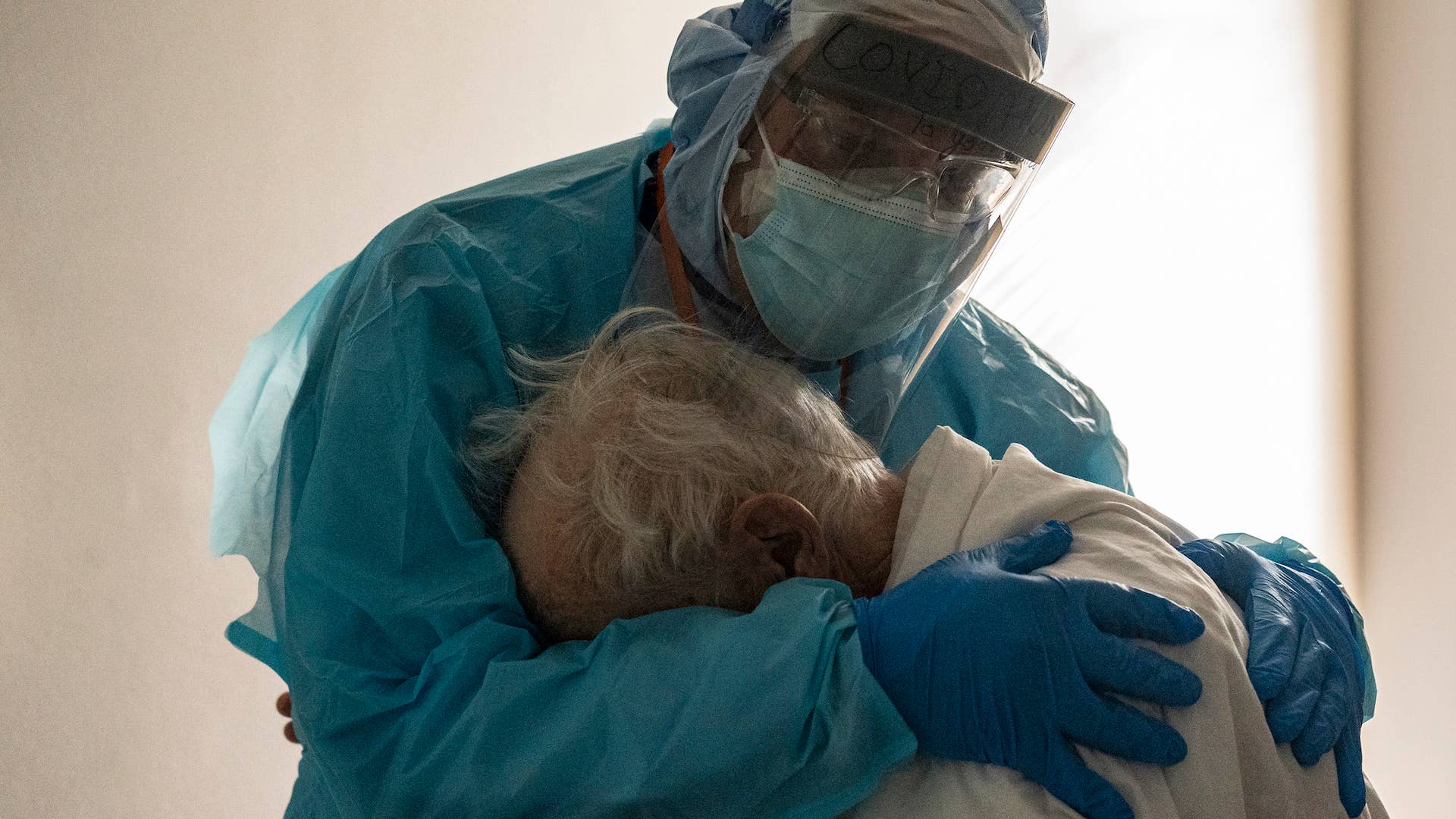
A photo of a Texas doctor cradling a COVID-19 patient in his arms made the rounds on social media this weekend, as the U.S. reels from a surge in cases following Thanksgiving.
The doctor in the image, Dr. Joseph Varon, chief of staff at United Memorial Medical Center in Houston, has repeatedly spoken about the isolation that his elderly patients are enduring and has begged the public to “do the basic things” to prevent infection, according to CNN.
On Monday, Varon told the outlet that he had worked for 256 straight days in the hospital, and has been disheartened by the growing number of hospitalizations. He also described how desperate some patients are to see their families, including the man pictured in the photo above. He also spoke to CNN's New Day last week, when he was at 251 straight days of working in the hospital.
“As I'm going inside my Covid unit I see that this elderly patient is out of his bed and trying to get out of the room and he's crying. So, I get close to him and I tell him, ‘Why are you crying’ and the man says, ‘I want to be with my wife.’” Varon said about the photo. “So, I just grab him, I hold him, I did not know that I was being photographed at that time.”
Varon said the man eventually felt better, but that he wouldn’t be able to see his wife until he tested negative and could be discharged.
"It's very difficult. You can imagine. You are inside a room where people come in in 'spacesuits' and you have no communication with anybody else, only by phone if you're lucky," he continued. "I mean it's very difficult, and when you are an elderly individual, it's even more difficult because you feel that you are alone. You feel isolated."
The patient in the photo is on the mend and may be able to see his wife soon, Varon said. He's hoping to discharge him by the end of the week, but the amount of cases, overall, is unrelenting.
He said he allowed Getty photographer Go Nakamura into the hospital’s COVID-19 ward so that Americans could see what’s happening behind closed doors. “Unfortunately, my concerns for the next six to 12 weeks is that if we don't do things right, America is going to see the darkest day in modern American medical history," he said.
“I don't know what keeps me going, I don't know how I haven't broken down,” he added. “My nurses have broken down. My nurses cry in the middle of the day because they get so sad, sometimes for situations like this. Just seeing a patient that's crying because he wants to see his family.”
Varon explained that he’s frustrated by people who continue to go out to bars, restaurants, and malls as the hospitals are overwhelmed with cases. "I do this day in and day out and people are out there doing the wrong thing. People are out there in bars, restaurants, malls — it is crazy — it's like we work, work, work, work, work and people don't listen and then they end up in my ICU," he said.
He also stressed that the public needs to practice social distancing, wear a mask, wash hands, and avoid large crowds.
"What people need to know is that — I don't want to have to be hugging them. They need to do the basic things: keep your social distance; wear your mask; wash your hands and avoid going to places where there are a lot of people. Very simple," he added. "If people can do that health care workers like me will be able to -- hopefully rest."

